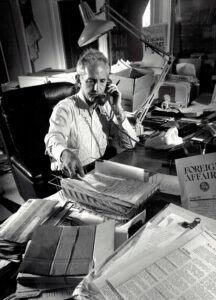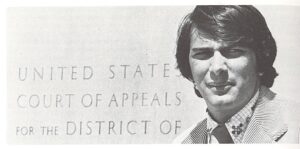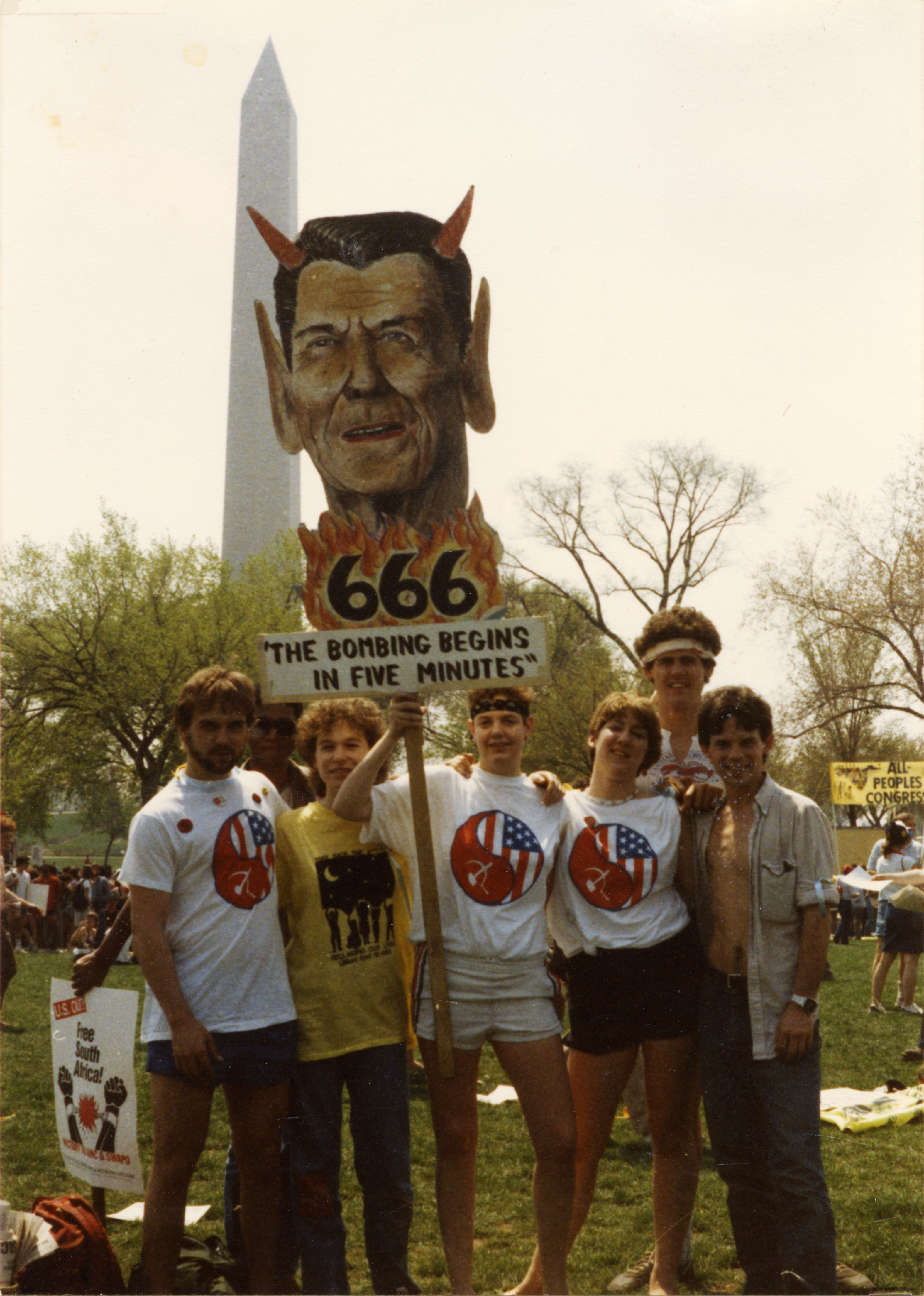Daniel Ellsberg Papers
For the latest updates and information about this collection, visit our research page on Ellsberg.
Author, Activist, Veteran, Civil Servant, Whistleblower, Cold Warrior, Academic, Patriot. Daniel Ellsberg has spent the bulk of his 89+ years asking questions and seeking truth. From his beginnings in government service as a marine operations officer, where he first received top secret clearances and saw war plans for the Suez Crisis in 1956-57; to his time in the Pentagon where he was involved in high level decision-making around nuclear policy and the Vietnam War; and to his moral awakening in 1968-69 when he decided to begin copying the Pentagon Papers for public release; Daniel Ellsberg has utilized his whip-smart intellect to dissect and disseminate complex government policies for those seeking to understand and critique the moral failings of their leaders.
In his singular career, Ellsberg traced an arc from Cold Warrior to antiwar and antinuclear activist. Initially, he seemed primed for the soft chair of the academy. As an undergraduate at Harvard, he produced a brilliant thesis in economics on “Theories of Rational Choice Under Uncertainty,” which fed decades of further research—his own and others—on the questions of ambiguity and decision-making. A prestigious year as a Woodrow Wilson Fellow at Cambridge would ordinarily have led to the next logical step toward an academic coronation, a doctorate at Harvard, but with his educational deferment running out and conscription looming, Ellsberg applied to become an officer in the Marine Corps. By the time he resumed doctoral research (on game theory), he had acquired a personal understanding of the military from the perspective of a platoon leader that would in the years to come leaven his scholarship.
As he wrapped up his dissertation, Ellsberg accepted a position with the RAND Corporation, placing him in the cold heart of where Cold Warriors honed their thoughts. An analytical mind and keen insight into decision-making fit neatly into the demands of understanding the problems of command and control in nuclear war. At RAND, Ellsberg found himself drawn into assignments such as the formal review of the Cuban Missile Crisis of 1962, which he conducted as a consultant to the Pentagon. What he witnessed from the privileged perch of top-level clearance was unsettling: he saw a shocking and persistent gap between what the best intelligence indicated and what the political establishment said and did.
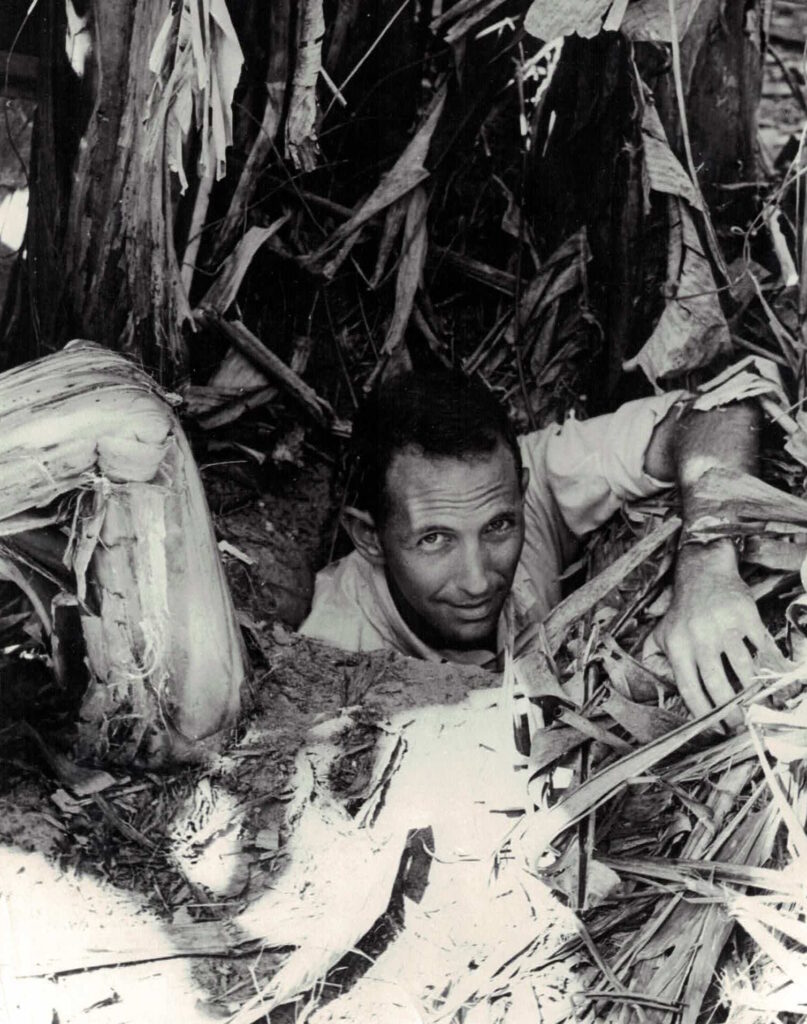
Vietnam emerged as a particular focal point for Ellsberg in 1964, establishing a powerful symmetrical concern with the nuclear threat that had been consuming his days. That summer, Ellsberg was attached to the Pentagon to assist in a strategic analysis to contribute to escalating the war, beginning his assignment ominously on the day of the Gulf of Tonkin incident. Less than a year later, he traveled to Vietnam as a high-level official of the State Department to work under Maj. Gen. Edward Lansdale, tasked with reviewing “pacification” efforts in the provinces. This was no desk job, nor would he be a mere observer. For much of 1966, Ellsberg traveled the country, machine gun in hand, often engaging in forward combat operations with U.S. forces. By the time he returned to RAND, his experiences had led him to conclude that the war was simply not, as many had argued, a civil war in which the U.S. had intervened, but a war of foreign aggression—American aggression. Having been an official of both the Defense and State Departments for years and having had high-level, authorized access, he had a unique perspective on the backdrop of official dishonesty, of secrets and lies and pro-war manipulations on the part of the military and political establishment, and he began to find common cause with the antiwar movement.
The germ of what would become the Pentagon Papers was planted at a War Resisters League conference at Haverford College in 1969, when Ellsberg encountered a draft resister, Randy Kehler (whose papers are also ensconced in SCUA). Kehler’s deliberate, direct confrontation of the system and his unstinting, willing acceptance of the consequences were moving, and by October, Ellsberg lit upon the idea of copying the secret, and deeply revealing reports on the war that he was reviewing for RAND. He knew well that if discovered, his actions could result in decades behind bars. For several weeks, Ellsberg and his colleague Anthony Russo surreptitiously photocopied a trove of 47 volumes and thousands of individual pages of sensitive documents that clearly revealed the extent to which four presidents over two decades had concealed and misrepresented the war and its dim prospects in the hopes, in part, of gaining electoral advantage and out of fear for being seen as the man who lost the war.
Initially, Ellsberg sent copies of the Pentagon Papers to the Senate Foreign Relations Committee and sympathetic members of Congress in the hope of creating a political momentum against the war from within the system. None spoke up. Only when the strategy of drawing congressional support failed did Ellsberg leak copies to the media—nineteen newspapers in all. To make a long (and frequently cinematized) story short, The New York Times struck first, publishing excerpts from the papers beginning on June 13, 1971, leading to the first four injunctions in American history constituting prior restraint against publication, and ultimately to prevailing in the Supreme Court over by the end of the month, voiding those injunctions. To make another long (and frequently cinematized) story short, Ellsberg set off a chain of events that played a catalytic role in the Watergate scandals and the undoing of President Richard Nixon.
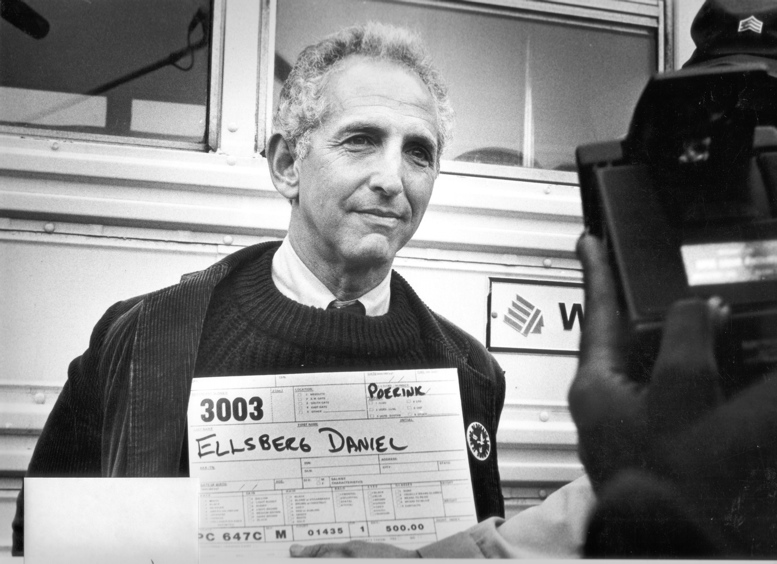
In January 1973, Ellsberg went on trial for his part in copying and distributing the Papers. Facing decades of prison time, he waged a resilient defense over the next four months and eventually won. Having survived the full force of the governmental onslaught, Ellsberg persisted. With the charges against him dismissed on the grounds of governmental misconduct, he returned to the front lines of opposition to tackle nuclear weapons, war, and governmental secrecy. He speaks, writes, and educates in the cause almost continuously, and he has taken part in protests and civil disobedience at sites such as the Pentagon, the Department of Energy, the Rocky Flats Nuclear Production Facility, and the Lawrence Livermore Laboratories.
The scope of the Ellsberg collection is vast; from family mementoes and correspondence during his time in the Marines in the 1950s, to research material collected during the War on Terror in the early 2000s. The collection provides researchers with a trove of valuable material on U.S. Government decision-making and secrecy from the Cold War to War on Terror eras, as well as Ellsberg’s personal life. Ellsberg’s time at RAND is well represented with unclassified reports and studies as well as notes, correspondence, analysis, and clippings. His trip to Vietnam in 1966 is chronicled with notes, correspondence, photographs, reports, and a series of reel-to-reel tape recordings. There are a voluminous amount of legal files and material acquired through Freedom of Information Act (FOIA) requests from his Pentagon Papers trial in 1973, which also bleeds into material on Richard Nixon and the Watergate crisis. His post-government anti-nuclear efforts are represented with correspondence, subject files, clippings, notes, and drafts of his 2017 book, The Doomsday Machine.
Anchoring much of the material are Ellsberg’s period notes taken during meetings, briefings, phone calls, and writing sessions while he worked at RAND and the Pentagon. They provide firsthand evidence of statements made by various government officials in the Kennedy, Johnson, and Nixon administrations as well as Ellsberg’s own observations and insights at the time.
The collection rounds out with clippings, magazines, newspapers, audio recordings, and video/film documentaries about Ellsberg, personal correspondence with friends and family, and material related to his advocacy on behalf of 21st century whistle blowers Edward Snowden, Chelsea Manning, and Julian Assange.

